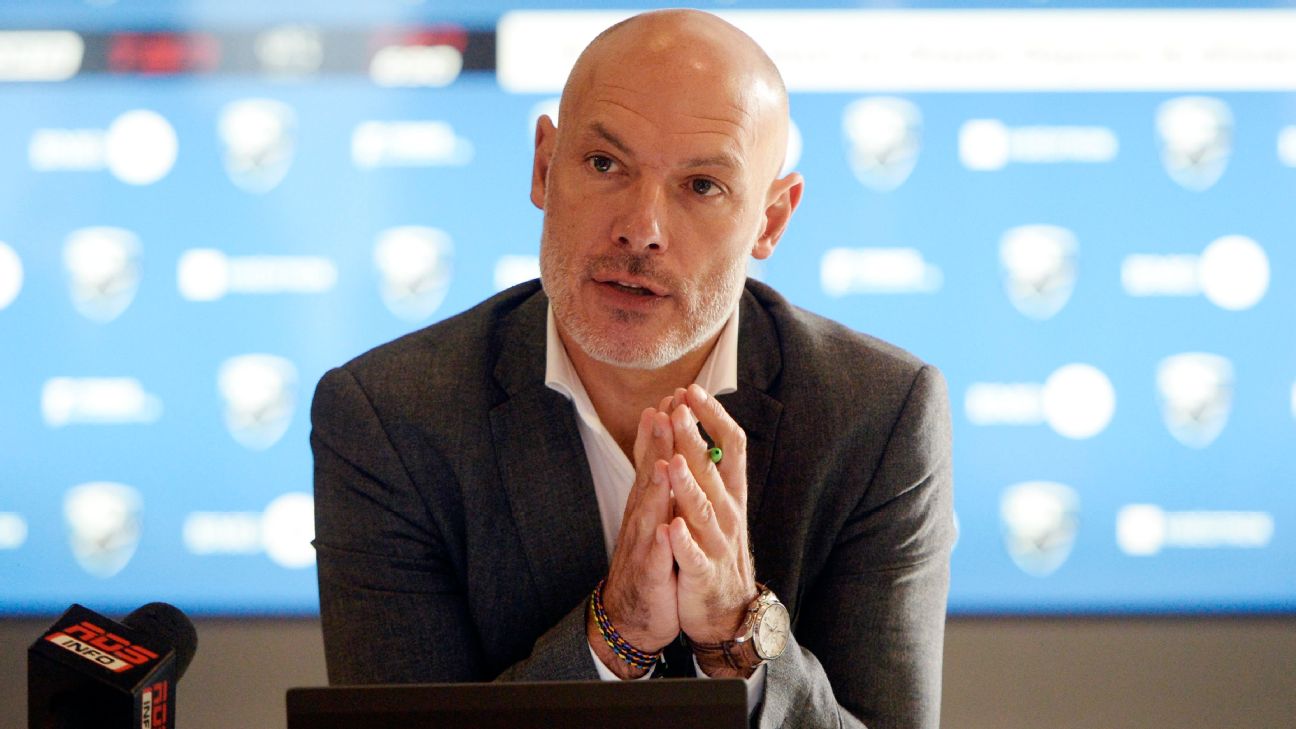

Howard Webb, the Premier League ‘s chief refereeing officer, insists longer matches and a clampdown on poor behaviour by players and managers won’t be a short-term measure and will lead to improvements at all levels.
The league will adopt the same timekeeping methodology seen at the men’s World Cup and Women’s World Cup, with the exact time added on for goal celebrations, substitutions, penalties, red cards and timewasting. In previous seasons referees would apply a more liberal approach, which led to lost game time. All but two games in the English Football League (EFL) opening weekend lasted more that 100 minutes, with the longest ending after more than 112 minutes.
A new Participant Charter for clubs, players and managers will try to ensure referees aren’t crowded or intimidated, while coaches who fail to act in a respectful manner in the technical area will be punished. Copycat behaviour has led to difficulties for referees at grassroots level and the English Football Association (FA) is determined to take action at the highest level.
– Stream on ESPN+: LaLiga, Bundesliga, more (U.S.)
– PL 2023-24 changes: Refs to clamp down on poor behaviour
“I am determined this won’t be something you only see during the next few days and weeks. Feel free to quote me on that,” Webb insisted. “We are determined to ensure this continues, particularly in participant behaviour.”
Manchester United defender Raphael Varane this week spoke out against the increased playing time, saying the FA had failed to listen to player concerns, which came after the huge amount of added time seen in the EFL, and the Community Shield between Arsenal and Manchester City.
But Webb believes the amount of added time will reduce as referees and players adapt to the changes, which came as a result of a direct from The IFAB, football’s lawmakers.
“We saw quite a strong approach from the officials who went out on the first [EFL] weekend to add time for all those areas in quite a precise way, on top of the goals, on top of the subs,” Webb said. “I think things will settle down a bit, players will realise that if they do waste time they are going to be caught and that will lead to a modification in player behaviour, so there will be less time wasted.
“We’ll see the amount of time that goes on the board come down because of that. We’ll see officials being more proactive to ensure the game restarts; we’re changing mentalities and actions across the board.
“The only focus we’ve said to the officials is exact time for goals, exact time for substitutions and exact time when red cards happen or penalties are awarded, everything else is the same apart from being stronger with delaying tactics and timewasting tactics.
“In the Premier League, we saw 8½ minutes last year. We looked at the events that happened last year and applied the new methodology, and we think that’s going to go up to about 11½ minutes per game, so three minutes more. We are expecting to see an increase, but not quite as much as what we saw with the EFL over the weekend.
“We spoke to the officials, and said the methodology applies to these specific match events, continue being robust with players who delay the game; the modification of player behaviour will reduce the time.”
Players will be booked more quickly if they waste time, while disrespect towards officials won’t be tolerated, leading to an increase in yellow cards last weekend. Arsenal boss Mikel Arteta was booked for showing an imaginary yellow card to the referee, asking for a Manchester City player to be cautioned.
“We had a lot of support over the weekend for the way our officials dealt with it,” Webb added. “I am not saying they are going to be perfect and identify absolutely every time someone deserves a sanction but I expect them to be consistent in the way they do that.
“By doing that people will have to understand that some behaviours that previously would have been managed or ignored will no longer be managed or ignored, and those behaviours will stop.
“It is important our officials recognise, understand and differentiate between emotion and passion and something that is unacceptable. For too long officials have not necessarily been able to make that differentiation too well or they have chosen to turn a blind eye to certain things, maybe thinking it was the best way to deal with it, not make a fuss, not draw attention to what might have been perceived as an error on the field.
“But the power of example is so strong and all the numbers are travelling in the wrong direction. We are seeing grassroots officials having a bad experience too often. This has to change in our sport. We are determined collectively in our game to do this.
“It is resting on the shoulders of the officials to do this but they understand by doing it consistently, they will improve the example that is set and the experience in the professional game. While initially there are some changes in behaviour that will have to be driven through, they will end up with a game that is more enjoyable from their point of view as well.”
Webb added: “We will stick to this, we’re not going to ease off or start to ignore behaviours in October or November. This will be here for good. We have a responsibility to the game at all levels and the future of the game as well, to work together to make it a better place for all participants.”
Webb confirmed that, following a successful trial in May, the Premier League will share the audio of VAR decisions on a monthly basis this season. It will begin in September, with the rationale behind decisions explained and mistakes discussed. Initially this will be on the ‘Match Officials Mic’d Up’ programme, aired via Premier League Productions.